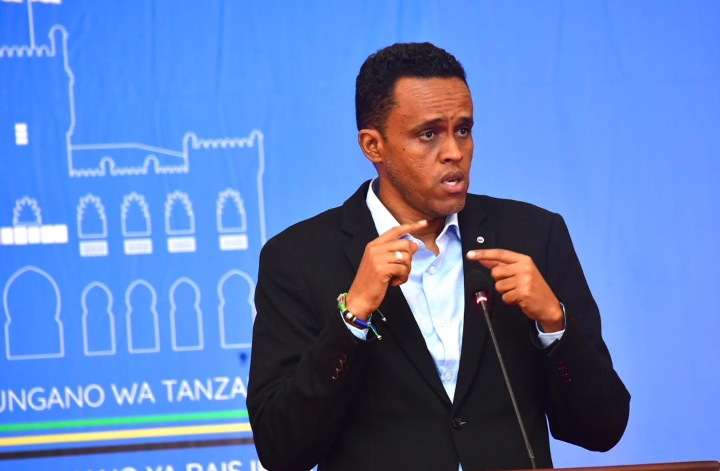Date: October 20, 2022
Tanzania’s agriculture sector, while historically vital, faces a pressing challenge: engaging the nation’s youth. As agriculture accounts for 66.6% of employment and contributes 26.1% to the national GDP, it’s crucial to address this issue. The “Building a Better Tomorrow: Youth and Women Initiative for Agribusiness” (BBT-YIA) emerges as a transformative force championed by the Minister of Agriculture, Hon. Hussein Bashe.
Rebranding Agriculture for Youth
At its core, BBT-YIA seeks to rebrand agriculture and make it more appealing to Tanzania’s youth. To achieve this, the program will implement a behavior and attitude-changing communication strategy. It aims to:
Inspire Youth: By reshaping the perception of agriculture, making it a dynamic and enticing career choice.
Empower Youth: Through comprehensive training, mentoring, coaching, and skill-building initiatives, enabling youth to either find employment or manage their own agribusinesses.
Engage Youth: By fostering profitable and sustainable youth-led agribusinesses.
Enable Youth-Led Enterprises: By improving the policy, legal, and regulatory environment, and facilitating Business Development Services (BDS) for youth in agribusinesses.
Coordinate Activities: Efficiently aligning the efforts of NGOs, public and private institutions, farmers, and development institutions in the youth agribusiness ecosystem.
Ambitious Goals
Over an eight-year period, BBT-YIA has set its sights on establishing 12,000 profitable enterprises in 12,000 villages across Tanzania. The program’s comprehensive approach includes:
Training 200,000 youth.
Involving 20,000 youth in internship programs.
Mentoring and coaching 15,000 youth-led agribusinesses through incubation programs.
Categorizing Beneficiaries
BBT-YIA will categorize beneficiaries into four clusters:
Cluster 1: Youth entrepreneurs in established agribusinesses.
Cluster 2: Youth entrepreneurs in the process of establishing agribusinesses.
Cluster 3: Youth trained to be the workforce in established agribusinesses.
Cluster 4: Youth with no initial interest in agriculture.
A Collaborative Effort
The success of BBT-YIA relies on strong public-private partnerships. At least 70 NGOs, public and private institutions, farmers, and development institutions will collaborate to achieve the program’s objectives. The Ministry of Agriculture will play a pivotal role as the facilitator and coordinator.
Funding for the Future
To finance this ambitious endeavor, BBT-YIA will tap into various funding sources. The estimated budget for the entire program is TZS 356.199 billion (USD 148,416,167), with 24% contributed by the Government (Ministry of Agriculture and PORALG) and the remaining 76% coming from development partners, NGOs, and the private sector.
Direct Beneficiaries: Tanzania’s Youth
Tanzania is home to approximately 16 million youths, with 10 million aged between 15 and 24 years and 6 million between 25 and 34 years. There are around 8 million farming households in 12,000 villages, averaging 667 households per village. BBT-YIA’s direct beneficiaries are the 12,000 youth-led agribusinesses, with the program targeting those aged between 15 and 35 years, spanning various educational levels from primary to university/college.
Youth Beneficiaries’ Value Chains
BBT-YIA focuses on both farming and off-farm activities within the agriculture and food system (AFS). Key areas include:
Farming: Emphasizing short-season crops such as horticulture (vegetables, fruits, and spices), cereals, and oilseeds.
Off-farm AFS: Targeting agro-processing, value addition, trade of cereals and fresh produce, and food services—areas of keen interest to youth.
Intermediate Beneficiaries
BBT-YIA’s impact extends beyond direct beneficiaries to include organizations, cooperatives, associations, and NGOs actively participating in its implementation. The program is expected to coordinate with at least 70 NGOs across regions, along with institutions such as SUGECO, Ministry of Ag. Training Institutes (MATIs), Centre for Agricultural Mechanization and Rural Technology (CARMATEC), Vocational Education Training Authority (VETA), Arusha Technical School (ARUSHA TECH), private commercial farms (e.g., Tomoni Farm, Nemes Greenish Farm, Magore Farm), and media companies.
Building a Better Tomorrow through BBT-YIA promises to reshape Tanzania’s agriculture landscape, creating a brighter and more sustainable future for its youth and the entire nation. The slogan echoes, “Youth Agri-business in the Neighborhood,” or in Swahili, “Kijana Janjika! Kilimo Biashara ndo Mchongo wa Kitaa.”
